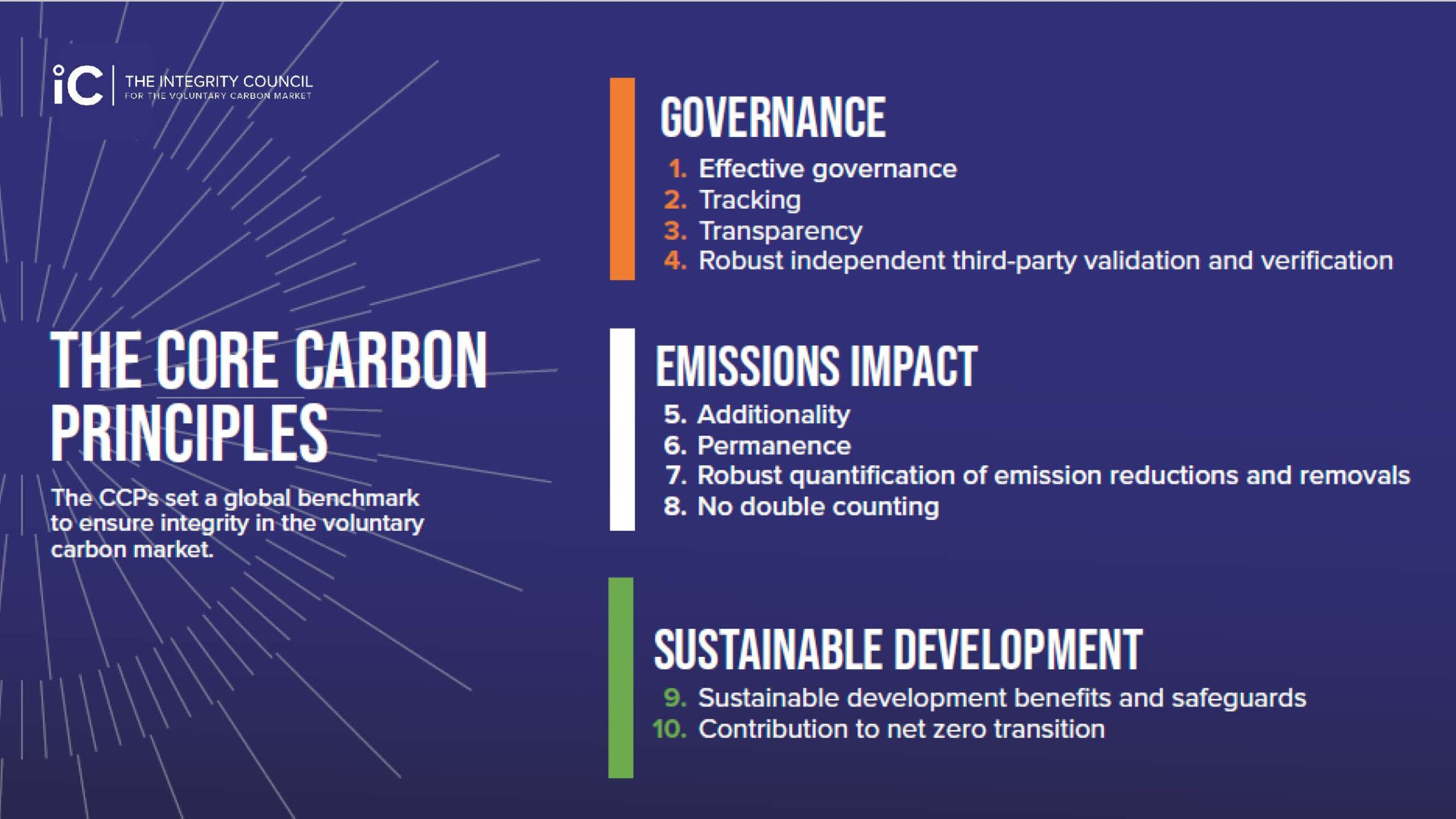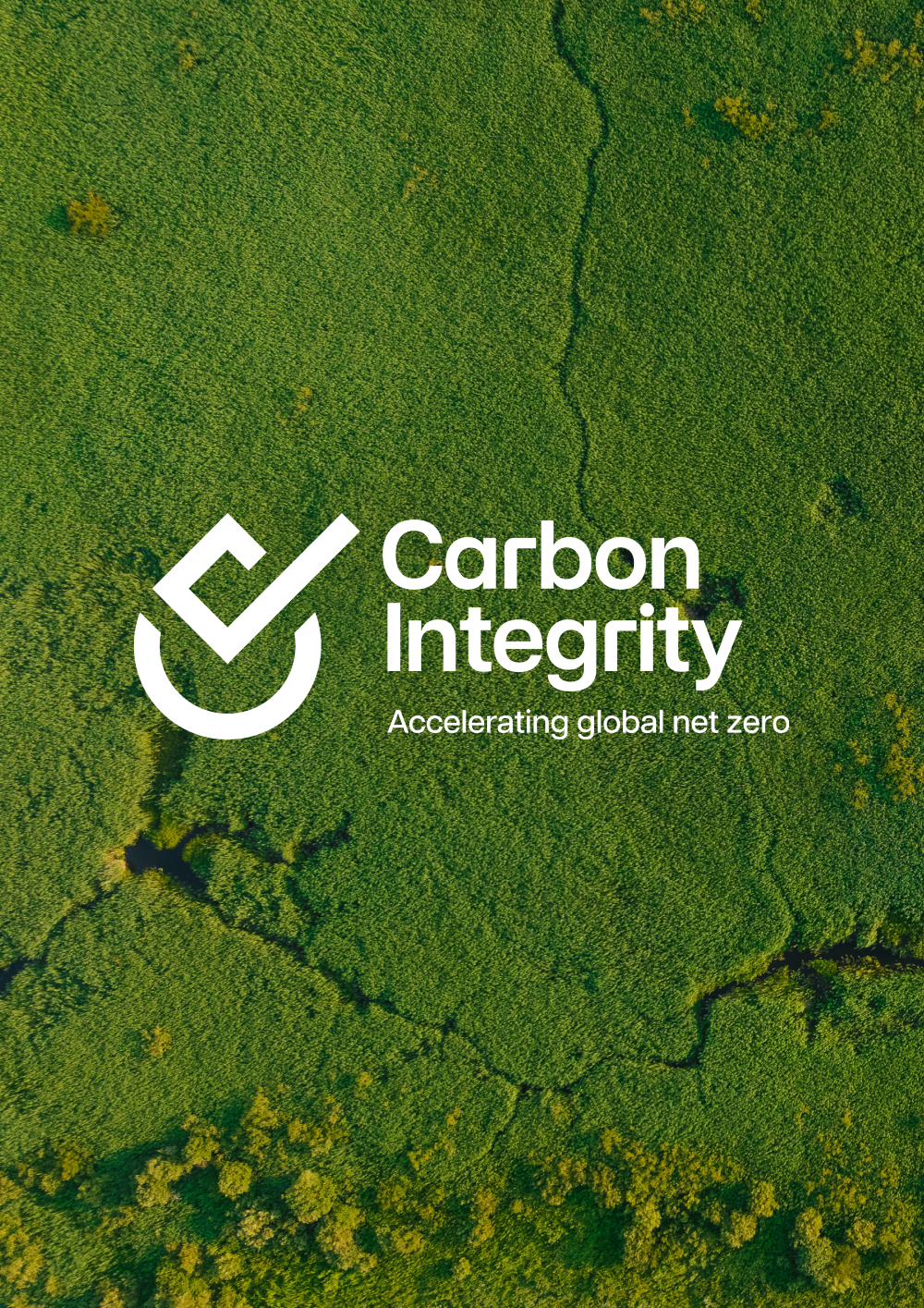In this article
We provide step-by-step guidance on how companies can follow VCMI’s Claims Code of Practice (Claims Code) to make a Carbon Integrity Claim.
Background
Carbon Integrity Claims are made by companies to showcase and communicate their climate leadership. By making a Carbon Integrity Claim, a company leverages high-quality carbon credits to go above and beyond in their climate action, accelerating global net zero.
The ‘Carbon Integrity’ Silver, Gold, and Platinum Claims enable companies to demonstrate climate achievement.
Four steps to make a claim
Following the four steps for making a Carbon Integrity Claim, as outlined in the Claims Code, companies should:
- Comply with a set of Foundational Criteria which demonstrate good corporate governance on climate
- Select a VCMI Claim to make and demonstrate progress towards meeting near-term emission reduction targets
- Purchase and retire high-quality carbon credits following the ICVCM’s Core Carbon Principles
- Report information using the VCMI Monitoring, Reporting & Assurance (MRA) Framework, which outlines procedures for reporting and assurance
Step 1: Complying with the Foundational Criteria
To be eligible for a VCMI Claim, companies must first comply with a set of Foundational Criteria that align with the long-term goals of the Paris Agreement and represent current corporate best practice on climate action. The Foundational Criteria require companies to:
- maintain and publicly disclose an annual greenhouse gas emissions inventory;
- set and publicly disclose science-aligned near-term emission reduction targets, and publicly commit to reaching net-zero emissions no later than 2050;
- demonstrate that the company is making progress on financial allocation, governance, and strategy towards meeting a near-term emission reduction target; and
- demonstrate that the company’s public policy advocacy supports the goals of the Paris Agreement and does not represent a barrier to ambitious climate regulation.
Step 2: Selecting a VCMI Claim to make and demonstrate progress towards meeting near-term emission reduction targets
Once a company has met the Foundational Criteria, it can select a VCMI Claim to make. VCMI has defined three claims that companies and other non-state actors can make; all three represent action above and beyond companies’ internal decarbonization efforts.
Each Carbon Integrity Claim requires the purchase and retirement of high-quality carbon credits proportionate to its remaining emissions once a company has met, or demonstrated progress towards meeting, its near-term emission reduction targets:
- Carbon Integrity Silver (≥ 10% and < 50%)
- Carbon Integrity Gold (≥ 50% and < 100%)
- Carbon Integrity Platinum (≥ 100%)

In addition, companies must be able to demonstrate emission reductions in comparison to their base year on an absolute or intensity basis.
A company should review whether it is able to meet this requirement with particular consideration for efforts made to minimize total emissions within its GHG emissions inventory, as well as the progress it is making towards meeting its near-term emission reduction targets.
A qualitative description of whether and why a company considers themselves to be making progress towards their near-term emissions reductions’ targets, must also be provided.
Step 3: Meeting carbon credit requirements
The carbon credits a company uses must be of the highest quality, both to underpin the credibility of its claims and to help drive integrity across the market. That’s why Step 3 sets the requirements that a company must meet when selecting carbon credits to purchase.
VCMI defines high-quality carbon credits as those that meet the Integrity Council for the Voluntary Carbon Market (ICVCM)’s Core Carbon Principles. The CCP label identifies carbon credits as high quality, ensuring that both the issuing program and the carbon credit type meet the criteria for high climate, environmental, and social integrity.
Until CCP-labelled credits are available, VCMI offers companies two alternative options:
- Option 1: Purchase and retire CORSIA eligible credits, when a specific activity type has not yet been assessed by the ICVCM.
- Option 2: Disclose how due diligence processes align with all 10 CCPs. This must be a public disclosure and will need to take the form of a statement included in a company’s annual or sustainability report, or other company controlled public disclosure method.

Step 4: Following the VCMI Monitoring, Reporting and Assurance Framework
To substantiate a VCMI Claim, companies must follow the reporting and assurance requirements outlined in the VCMI Monitoring, Reporting & Assurance (MRA) Framework.
The MRA Framework includes a series of useful Appendices to help companies understand the requirements to make a claim in great detail. For example:
- Appendix A outlines evidentiary documentation required to support these disclosures
- Appendix B provides a summary of reporting requirements to make a VCMI Claim
Additionally, VCMI intends to build on and align with—not duplicate—existing benchmarks and corporate accountability frameworks. As such, it has mapped the VCMI requirements to make a claim against internationally recognized, commonly used disclosure frameworks such as CDP, ISSB and GRI, as well as regulatory frameworks like the EU CSRD. Appendix D of the MRA Framework outlines this climate disclosure framework alignment.
Submitting a VCMI Carbon Integrity Claim
Companies that have met all the above four steps to make a Claim can register on the VCMI Claims Reporting Platform to submit all necessary information.
Once a company has completed the submission process on the Reporting Platform, VCMI will conduct a review of all information to determine whether it meets the requirements to make the selected claim (either Platinum, Gold or Silver). Following this review, companies that have successfully demonstrated they meet all the requirements will be given access to the appropriate branding assets and guidelines to make a Carbon Integrity Claim and share it with the world.
 Ready to lead on climate?
Ready to lead on climate?
Find out how close your company is to making a Carbon Integrity Claim, and what steps are left to qualify, via our simple questionnaire.
Complete our Claims Readiness Check

